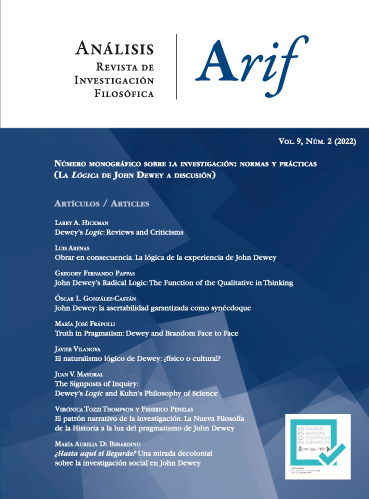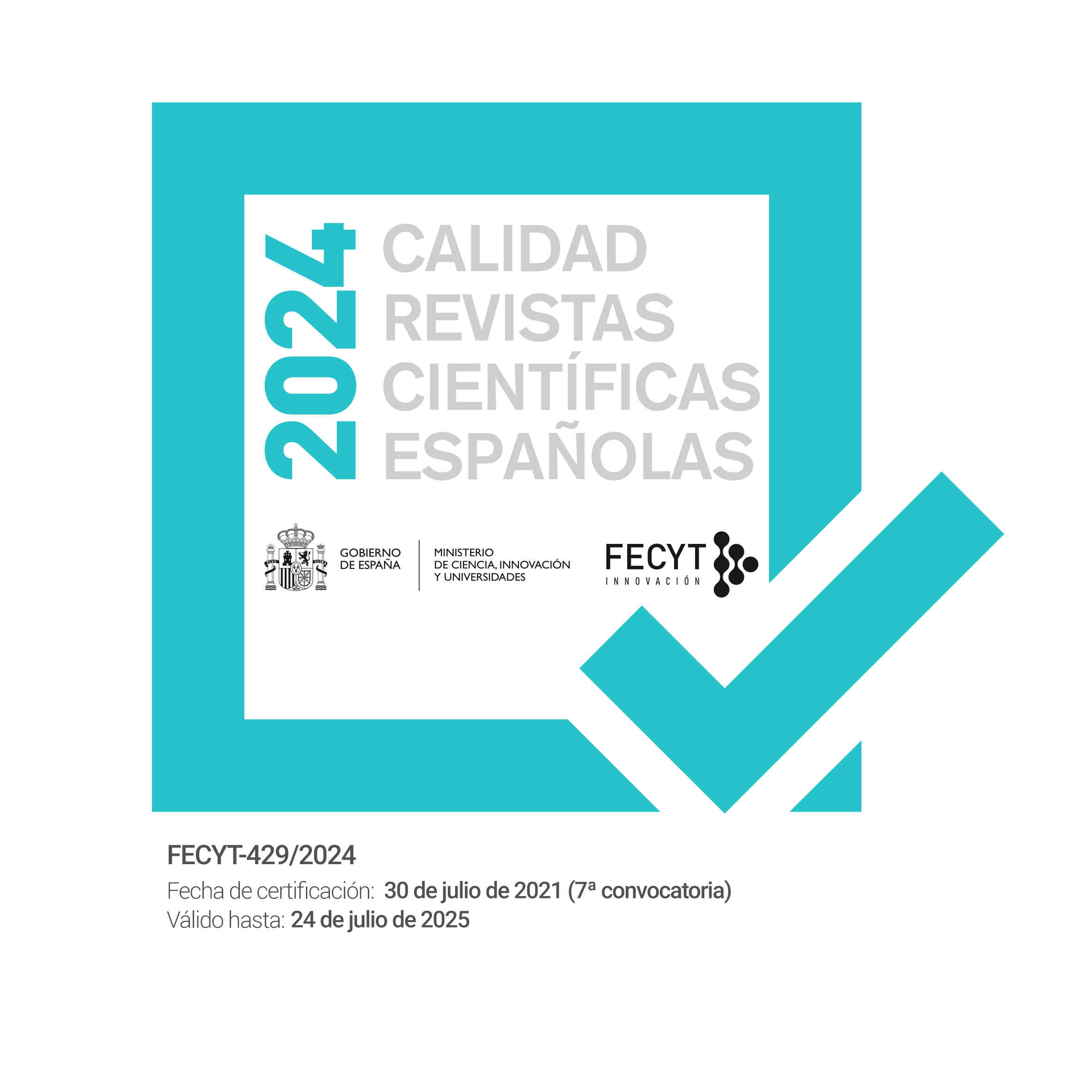The Narrative Pattern of Inquiry. The New Philosophy of History in the Light of John Dewey’s Pragmatism
DOI:
https://doi.org/10.26754/ojs_arif/arif.202227309Abstract
Dewey's thoughts on historical knowledge should be appreciated under the light of the disputes in contemporary philosophy of history, especially in the narrative drift. On the one hand, as he addresses the subject in terms of narration and writing, this chapter appears as a precursor text of narrativist philosophy of history. Furthermore, given that his accounts on history are framed within a general theory of inquiry (narrative writing of the past is a case of judgment), offers us a useful tool to avoid skeptical readings of narrativism. We find in Deweyan text a strong strategy to give good reasons (in terms of pragmatist rationality) to appeal to literary studies when analyzing the processes of construction and acceptance of historical knowledge. Finally, as he presents narrative as the expression of the temporal phase of inquiry in general, on the one hand, he avoids engaging with the methodological dualism that stablishes substantive differences between history and science, and, on the other, he gives arguments against the collapse between history and artistic literature. However, they will not be expressed in Rankean terms (something that Dewey explicitly rejected) but in pragmatist terms, that is, pointing out a functional difference between historical and artistic narrative.
Display downloads
Downloads
Published
Issue
Section
License
Copyright (c) 2022 Verónica Tozzi Thompson

This work is licensed under a Creative Commons Attribution-NonCommercial-NoDerivatives 4.0 International License.
Los autores que publican en esta revista están de acuerdo con los siguientes términos: los autores conservan los derechos de autor y garantizan a la revista el derecho de ser la primera publicación del trabajo al igual que licenciado bajo una Creative Commons Reconocimiento-No Comercial-Sin Obra Derivada 4.0 (CC BY-NC-ND) que permite a otros compartir el trabajo con un reconocimiento de la autoría del trabajo y la publicación inicial en esta revista. Los autores pueden establecer por separado acuerdos adicionales para la distribución no exclusiva de la versión de la obra publicada en la revista (por ejemplo, situarlo en un repositorio institucional o publicarlo en un libro), con un reconocimiento de su publicación inicial en esta revista.
How to Cite
Accepted 2022-09-18
Published 2022-12-02






